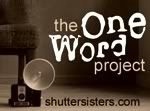Trust women
>> Sunday, April 12, 2009 –
thoughts
I am firmly Pro Choice. You know what I'm talking about.
There are a couple of reasons, one being that I do not think that the government (or anyone) has the right to tell a woman what to do with her body.
Another reason is neatly summed up by this article -
The biblical portrait of personhood begins not with an explanation of conception but with a portrayal of the creation of Adam and Eve. The biblical portrait of a person, therefore, is that of a complex, many-sided creature with godlike abilities and the moral responsibility to make choices. The woman unquestionably fits the biblical portrayal of person.Not to say that I think abortion is a good thing. Ideally it would never have to happen and if the correct education were in place the abortion rate in the US would be much lower. As it goes the US has the highest abortion rate in the Western world. In fact only Russia beats the US. Abstinence education not working much? Since when in the history of anything has anyone ever expected a teenager to listen to them when they tell them to not do something. Seriously.
The abortion question focuses on the personhood of the woman, who in turn considers the potential personhood of the fetus in terms of the multiple dimensions of her own history and future. Because the pregnancy is hers, the decision to continue the pregnancy is uniquely hers. She is aware that God wills health and happiness for her, for those she may bring into the world, and for the human race. Thus, she is engaged in reflection on her own well-being, the genetic health of the fetus, and the survival of the human race.
The absence of prohibitions against abortion in the Bible does not mean either that abortion was widely practiced or that there was a cavalier attitude about pregnancy termination. Then as now elective abortion posed substantive issues with which a woman or couple must come to terms. Respect for germinating life, one’s own beliefs, and one’s life plan all enter into the decision. Certainly reasons beyond mere convenience are needed to make the morally serious decision to terminate a germinal existence. Abortion is never to be taken lightly, but it is not a forbidden option.
Roman Catholic and Protestant doctrines differ in, among other things, the degree to which they are legalistic. The Catholic Church would have us obey the rules formulated by the Vatican, but Protestants believe that we are free by grace and justified by faith. The phrase “the sacredness of life” means one thing to Catholic bishops—that the life of the fetus is all-important—but to most people of other Christian denominations it means that there is a presumptive right to life that is not absolute but is conditioned by the claims of others. For us the right to life and the sacredness of life mean that there should be no absolute or unbreakable rules that take precedence over the lives of existing human persons.
The pro-life position is really a pro-fetus position, and the pro-choice position is really pro-woman. Those who take the pro-fetus position define the woman in relation to the fetus. They assert the rights of the fetus over the right of the woman to be a moral agent or decision maker with respect to her life, health, and family security.Dr. Paul D. Simmons
I just say that because I imagine the high abortion rate has a lot to do with the high teen pregnancy rate in the US. Although that particular chart is measured by births... so who knows.
Just a thought for today I suppose. I should never get into my political or religious views on here really.


















Post a Comment
Please do not use the blogger comment form to leave a comment as no one will be able to see it! Please use the intense debate form above.